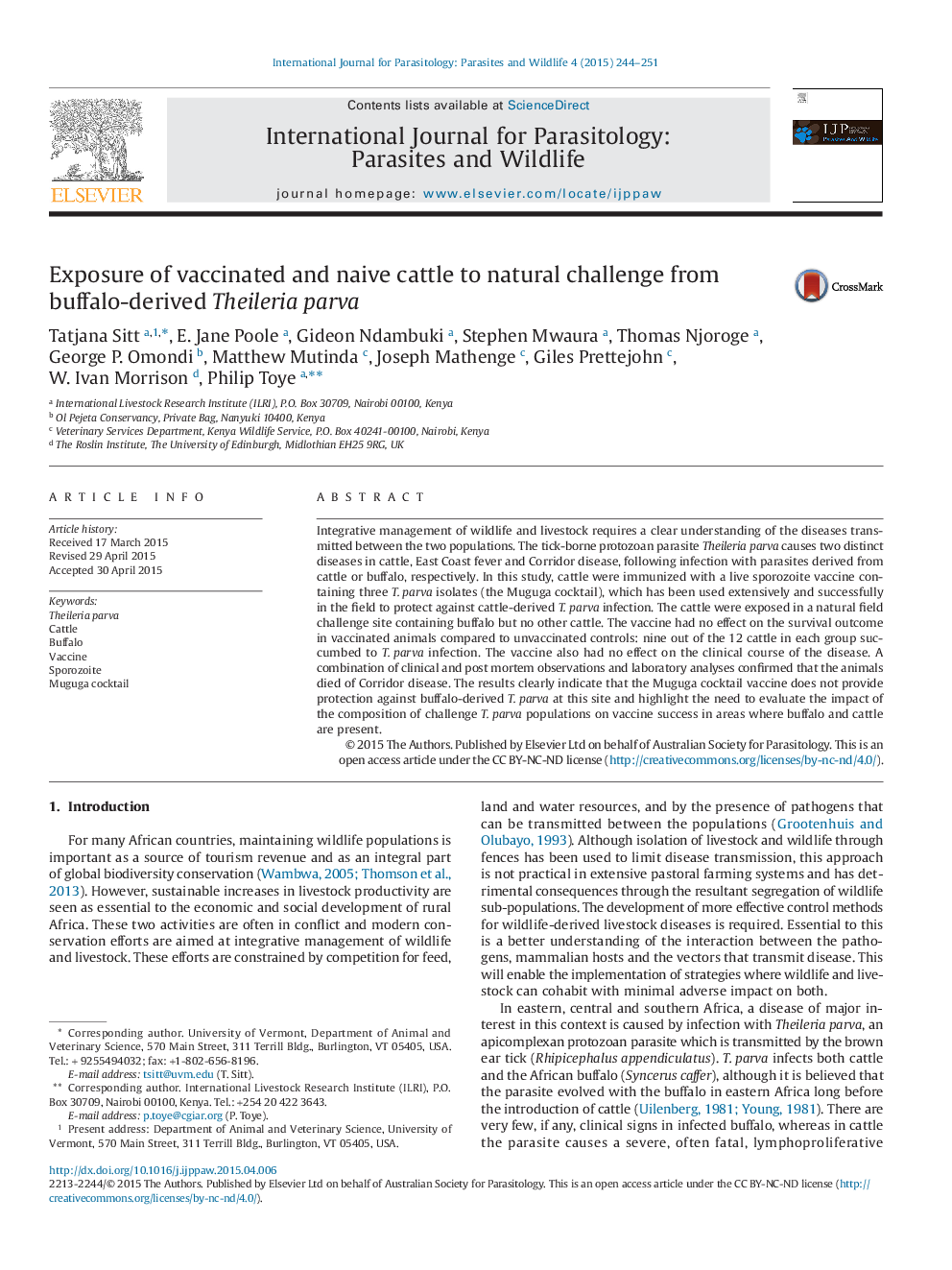| کد مقاله | کد نشریه | سال انتشار | مقاله انگلیسی | نسخه تمام متن |
|---|---|---|---|---|
| 2055256 | 1075737 | 2015 | 8 صفحه PDF | دانلود رایگان |

• The Muguga cocktail was tested in cattle in a buffalo-only location.
• Infection with buffalo-derived T. parva caused Corridor disease in cattle.
• At the conservancy, the cocktail did not protect cattle against Corridor disease.
• Efficacious vaccines can support integrative livestock/wildlife management.
Integrative management of wildlife and livestock requires a clear understanding of the diseases transmitted between the two populations. The tick-borne protozoan parasite Theileria parva causes two distinct diseases in cattle, East Coast fever and Corridor disease, following infection with parasites derived from cattle or buffalo, respectively. In this study, cattle were immunized with a live sporozoite vaccine containing three T. parva isolates (the Muguga cocktail), which has been used extensively and successfully in the field to protect against cattle-derived T. parva infection. The cattle were exposed in a natural field challenge site containing buffalo but no other cattle. The vaccine had no effect on the survival outcome in vaccinated animals compared to unvaccinated controls: nine out of the 12 cattle in each group succumbed to T. parva infection. The vaccine also had no effect on the clinical course of the disease. A combination of clinical and post mortem observations and laboratory analyses confirmed that the animals died of Corridor disease. The results clearly indicate that the Muguga cocktail vaccine does not provide protection against buffalo-derived T. parva at this site and highlight the need to evaluate the impact of the composition of challenge T. parva populations on vaccine success in areas where buffalo and cattle are present.
Graphical AbstractFigure optionsDownload as PowerPoint slide
Journal: International Journal for Parasitology: Parasites and Wildlife - Volume 4, Issue 2, August 2015, Pages 244–251